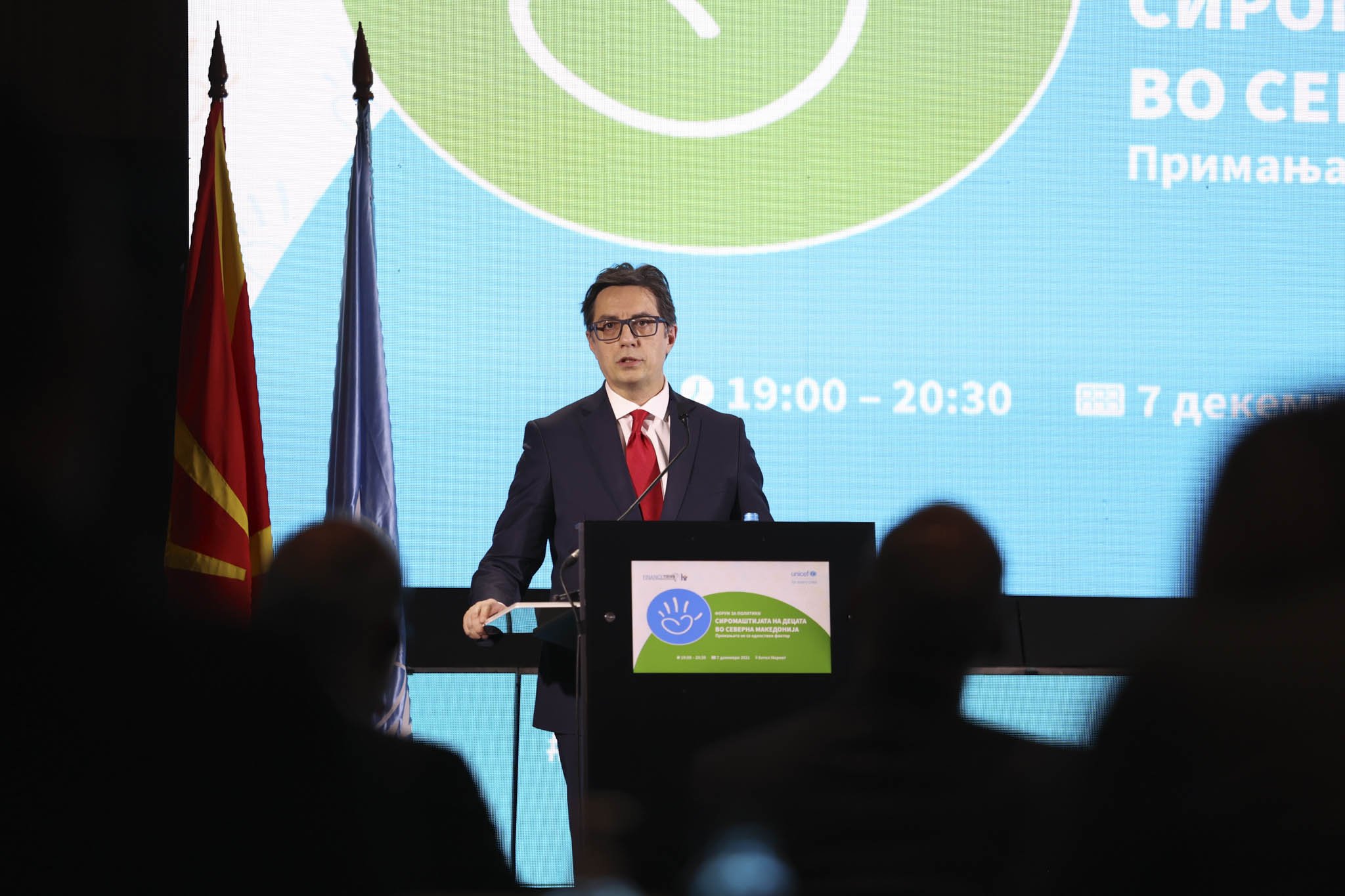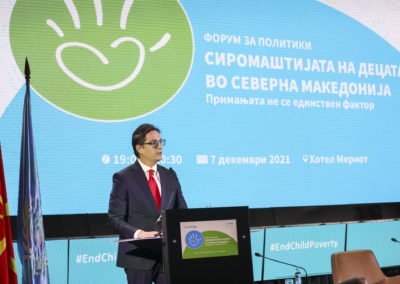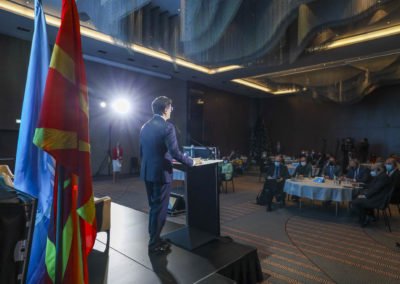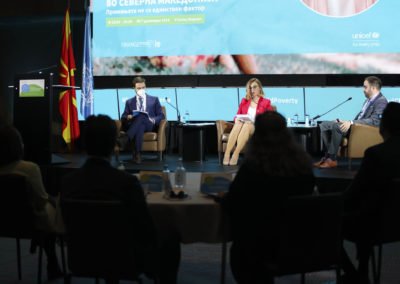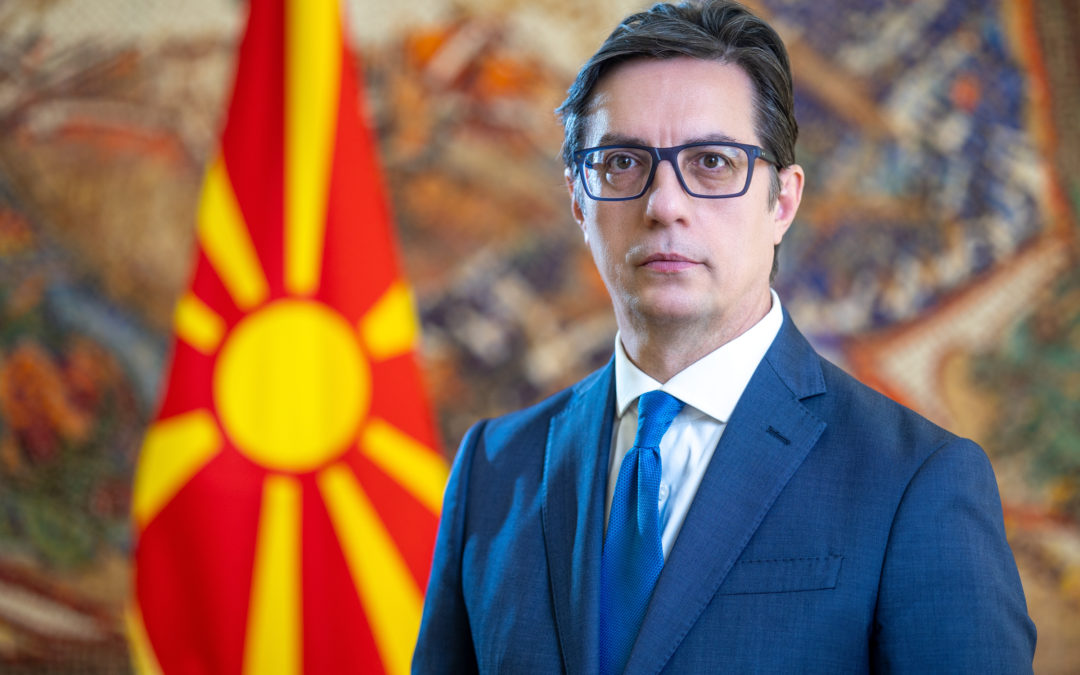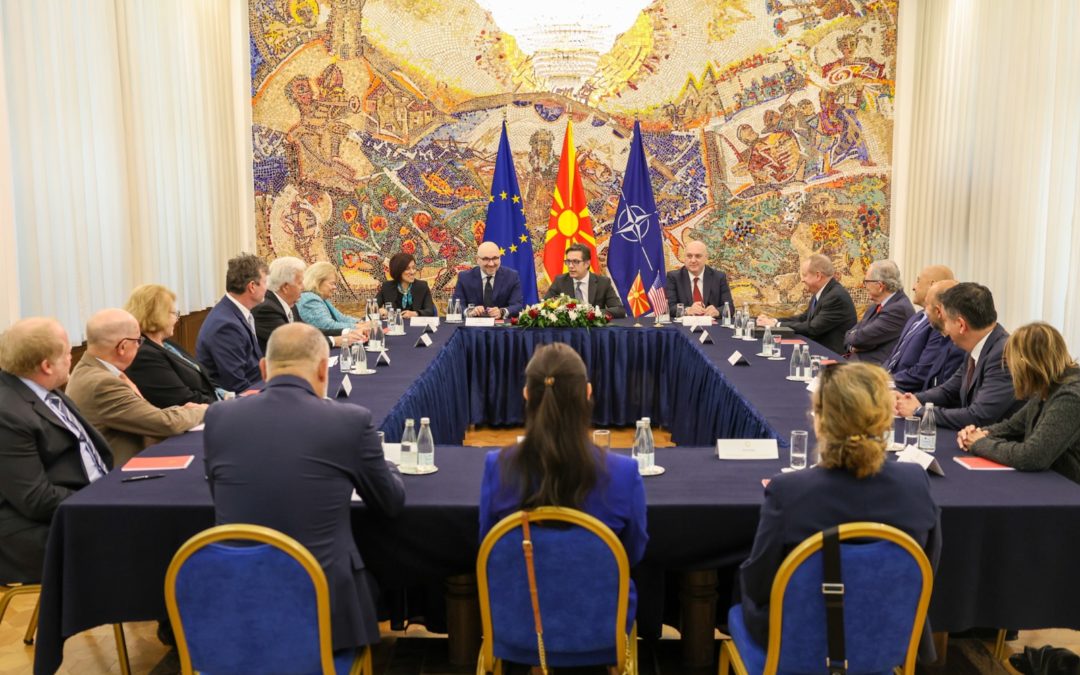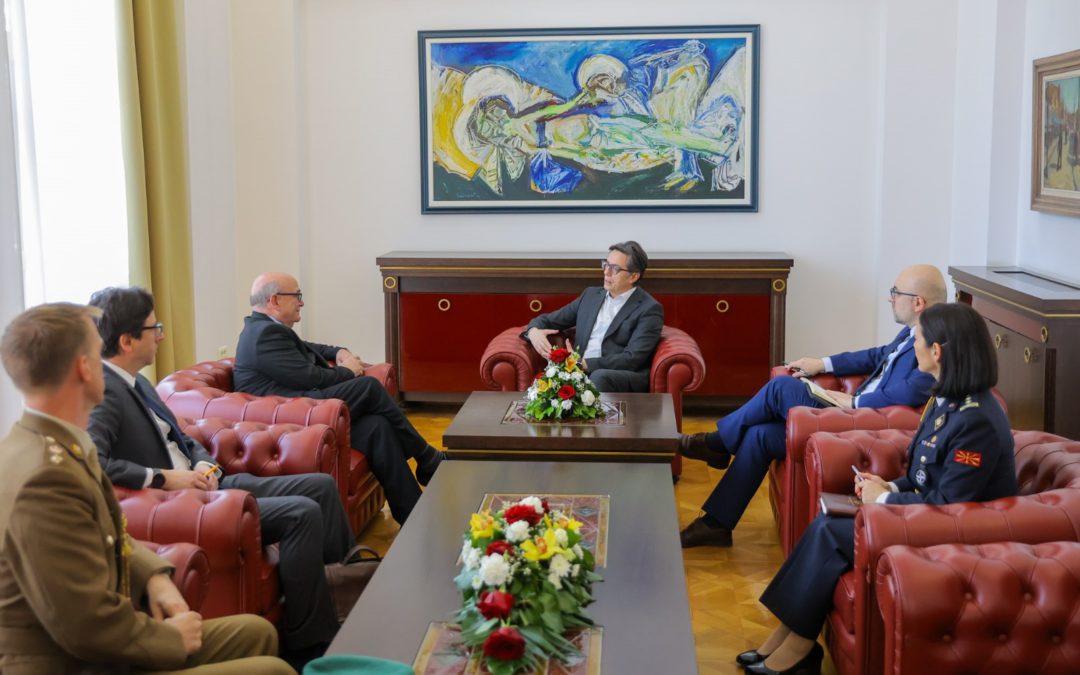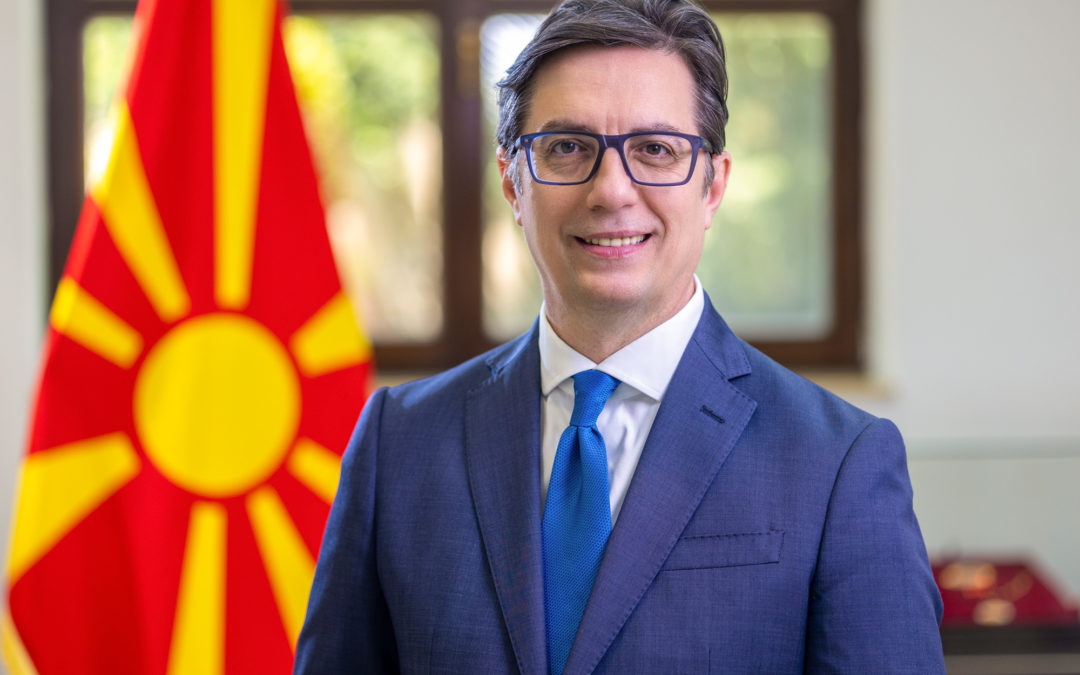President Stevo Pendarovski addressed the policy forum “Child Poverty in North Macedonia – Income is not the only factor”, which was held this evening, organized by the UNICEF Office in the Republic of North Macedonia and the Institute for Economic Research and Policy “Finance Think”.
The integral text of the address of President Pendarovski is below.
Dear Mrs. Di Giovanni,
Distinguished guests,
Ladies and gentlemen,
Today we are gathered to discuss a very important and, unfortunately, topical issue. Child poverty is part of what the American philosopher Wolterstorff symbolically calls the Quartet of the Vulnerable, which includes single mothers, orphans, migrants and the poor. These categories disproportionately feel the impact of every crisis, including the combined effects of the current health, economic and energy crisis.
The Universal Declaration of Human Rights, as well as the Declaration and the Convention on the Rights of the Child unequivocally indicate that the most vulnerable members of every society are children who, due to their age, need special care and assistance.
Children are particularly at risk of poverty. Although our country has managed to reduce extreme poverty in recent years, we are still far from the goal. In 2019, before the onset of the pandemic, child poverty accounted for almost 28% of the country’s total poverty. More than 8% of children under 5 and almost 12% of children between 5 and 17 years of age are living in poverty. The fact that almost every third poor child under the age of five is from the Roma community suggests that one of the causes of poverty is discrimination.
Sometimes, this worrying statistic, instead of shocking, can depersonalize children and reduce them to a number. Therefore, when we look at these statistics, we must not lose sight of the fact that behind each number is a specific child who lives among us. I will cite just a few examples: an extreme form of exclusion is faced by children who were not registered in the birth registry due to which they are practically invisible to the state institutions and are deprived of basic social protection. Or, we can talk about children who in pandemic conditions were not able to attend online classes because they do not have a computer or internet access. Let us not forget the orphans who are often left at the mercy of society or the children who beg on the streets to survive. As the deepest form of social injustice, child poverty is a scandal for any democratic society.
Distinguished guests,
The poverty we are talking about today is not only material, but multidimensional. It includes lack of security, care and love, a warm home with access to water and sanitation, health care, especially in early childhood development. The poor are deprived not only of financial means, but also of the opportunity to live a dignified life, without relying on the help of others, including the help of the state. And that often undermines their self-esteem.
Child poverty is also a trans-generational phenomenon; inequality often increases with each succeeding generation. Children are trapped in a cycle of poverty from birth and, if left alone, without help from the state, civil society organizations or conscientious individuals, they are more likely to remain poor. The education of their parents or guardians indeed plays a key role. The more educated they are, the more likely it is that children will be protected from poverty, and vice versa. In this digital age, we also have new, digital forms of inequality that further prevent children from engaging in educational and professional processes of advancement.
This social injustice has another important aspect. According to psychologists, it is in childhood that the foundations of the human personality, character, habits, worldviews are formed. Many of the decisions that children make have a profound effect on their lives. We can only imagine the daily decisions made by children who are starving, living in unstable families, with limited access to education, exposed to covert or overt discrimination and exploitation.
Esteemed attendees,
We cannot say that we live in a free and just society as long as there are children living in poverty. Hence, the issue of child poverty is primarily a moral and ethical issue. We do not need an abstract ethic based on vague concepts, but a concrete ethic that implies practical steps and policies that lead to systemic and structural changes that will create conditions for raising children from the poverty zone and their equal inclusion in society. Solidarity with the vulnerable is much more than an act of generosity. Solidarity means fighting the structural causes of poverty and inequality.
We are grateful to the United Nations and the UNICEF Office for their assistance. After such a thorough research conducted in partnership with Finance Think, and taking into account the guidelines of the Oxford Initiative for Poverty and Human Development, we, the politicians, have absolutely no excuse to ignore this serious issue. When considering any economic, social, but also educational policy, from taxes to social assistance, we must take into account how it will affect the most vulnerable. At the same time, we must be aware that the eradication of child poverty is a constant struggle that we have to fight on a daily basis.
Dear friends,
There is no more relevant criterion for the character of a society than the attitude towards its most vulnerable members. If we do not see progress here, we will be not only responsible but, I would say, guilty, for whole generations with betrayed expectations. Today’s children are our parents and relatives tomorrow, employers and workers, civil activists, artists, athletes, teachers. Fighting for their happy childhood, in fact, we are fighting for our, common, more beautiful future. Thank you.
Thank you.

